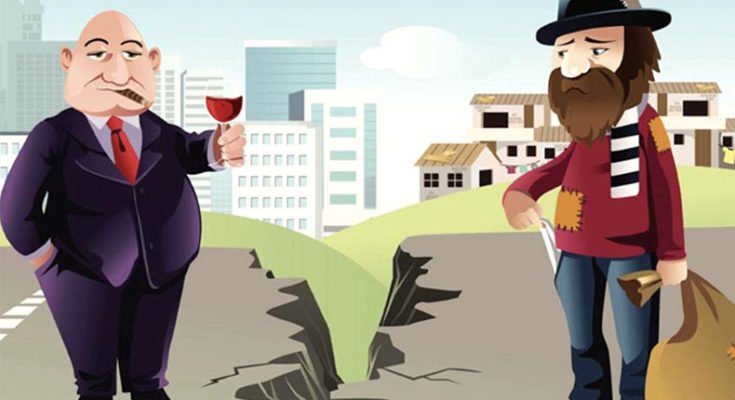Difference between rich and poor is increasing in Germany. Image Courtesy – https://www.linkedin.com
Social inequality in Germany is increasing gradually, and in recent times it has become a point of debate among the experts in economics worldwide. Economic growth is getting inactive as the federal government expected only 1.4% increase in growth. The difference between rich and poor is increasing gradually, which is not at all good for a country’s economy.
A recent study demonstrated that the 10% wealthiest in Germany have resources adding up to 1.4m Euros overall, which was 80 times more than the yearly wage of the middle-class German family. New research revealed that Germany abolished the net wealth tax after the decision that the tax framework applied until 1997 was unconstitutional. Thomas Theobald, one of the authors of the research, said that German companies have increasingly maintained their corporate profits, but their income was not subject to income tax. So, they have remained statistically invisible and created a prominent picture of wealth inequality.
Read: Same-sex marriage is now legal in Australia
The term used across the EU refers to anyone who lives below 60% of the median income; it may be a child or an adult, according to the statistics. In Germany, that threshold is 917 euros ($1102) per month for one person and 1,192 euros ($1432) for one parent with a baby below 6 years of age.
Marcel Fratzscher, President of the German Institute for Economic Research and professor at Humboldt-University of Berlin, stated that Germany has now become one of the most unequally wealth-distributed countries in the industrialised world. He also said that no other member state of the European Union has this situation with so unequally distributed wealth; incomes are also getting unequal day by day.
Education may be one solution to the disparity in the socio-economic system. According to an economic researcher, childhood education in the early stages is neglected in Germany. They suggested that children from lower-income groups could benefit if the stage of education could be provided better in the country. Germany provides 4% of its gross domestic product for education in comparison to the other European countries, where they provide 5% on average.
Read: Bengal remains at the top of the UN list of missing Women and Kids
Prof. Dr. Andreas Peichl, Director of the Ifo Institute for Economic Research, stated that the difference between rich and poor is directly proportional to globalisation and digitalisation. Machines are continuously replacing human labour, and routine jobs are being sent outside of the country. In that situation, a highly qualified worker may be safe to some extent, but a worker who belongs to the low-wage group is in danger. But the government has not shown any effective measures to protect those low-wage labour groups. As a result of this, income difference and economic differences are increasing simultaneously.





